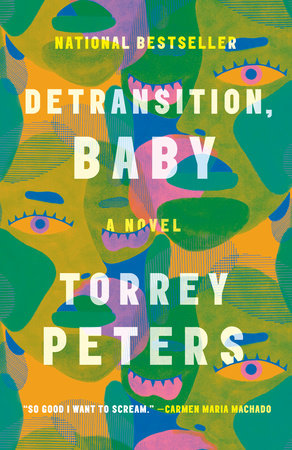Torrey Peters’ debut shines out in a sea of mediocrity
By JACOB ANDERSON — arts@theaggie.org
In the world of MFA-sphere contemporary fiction, one pretty much knows what to expect. As many have pointed out, the insular, upper-class mores of academic-trained fiction seem to be incapable of producing anything artistically innovative because those for whom spending massive amounts of money on a degree with no economic value is an option are typically not the same people living interesting, varied and strange lives — and those living interesting, varied and strange lives tend to make the best art as a rule.
For this reason, it’s of some import that Torrey Peters is able to produce a novel like “Detransition, Baby,” which actually manages to feel sincerely alive at times. After all, writing a novel that is at its core is about your life is a dangerous endeavor: if your life is boring, as most of ours are, the novel will be boring (unless you’re some kind of John-Updike- or David-Foster-Wallace-type scoundrel with prose so impressively overwrought that your lack of personal importance seems to fall away). Peters’ novel has been able to gleam through the refuse heap of MFA-produced fiction because the problems — and people — it illustrates have been ignored in all but their most superfluous elements by commercial publishers until recently. Up to the last half decade or so, Penguin Random House would’ve turned up their collective nose at the prospect of publishing a novel about trans people, especially one in which nobody gets murdered at the end.
“Detransition, Baby,” uneven and occasionally populated by flatlined characters though it may be, is able to dodge the narcotizing effects of semi-autobiographical fiction and put forward a story that fuses the personal with ongoing social struggles that strike much closer to the heart of contemporary culture than the novels of Peters’ contemporaries. This is a glowing attribute and doubly so for something coming out of a huge publisher.
On a basic level, “Detransition, Baby” is about identity and the sometimes antagonistic relationship between self-perception and the way one has to slot oneself into the world: Peters’ characters — namely Reese, the destructive, neurotic trans woman seeking motherhood, and Ames (or Amy), the eponymous detransitioner and comparatively stable Dartmouth grad — have a tendency toward self-reflection. This trait serves to make the book’s internal conversation about what it is to be a person much stronger; a large part of the book comprises episodes in the histories of these characters, such as Reese’s various affairs with abusive men and Ames’ college experiences leading up to their transition, all of which Peters is able to display in frank and charming detail, never slipping into over-indulgence.
At times, though, it feels like Reese and Ames are the only proper characters in the book. Others, like Katrina, Ames’ boss whom they’ve impregnated, feel distinctly fake, as if they existed only to provide opposing forces and perspectives to balance everything else out. One can’t help feeling that the novel would’ve been stronger if these characters, plot-driving or otherwise, were worked out of the story. Maybe the worst offender is Reese’s lover, Stanley, who gives the impression of a villain from a particularly awful animated family film rather than any sort of realistic human being. What’s most attractive about Peters’ fiction is the continuous, internal changes found in its central characters, and when it has time to focus on nothing else, it shows indisputable skill, but the presence of these less convincing elements poses a threat to verisimilitude.
Regardless of whatever flaws might be present, “Detransition, Baby” is an attractive and sincere first novel. It doesn’t take much imagination to consider the possibility that it might be indicative of stronger works in the future, too, once any kinks in the road are worked out.
Written by: Jacob Anderson — arts@theaggie.org




